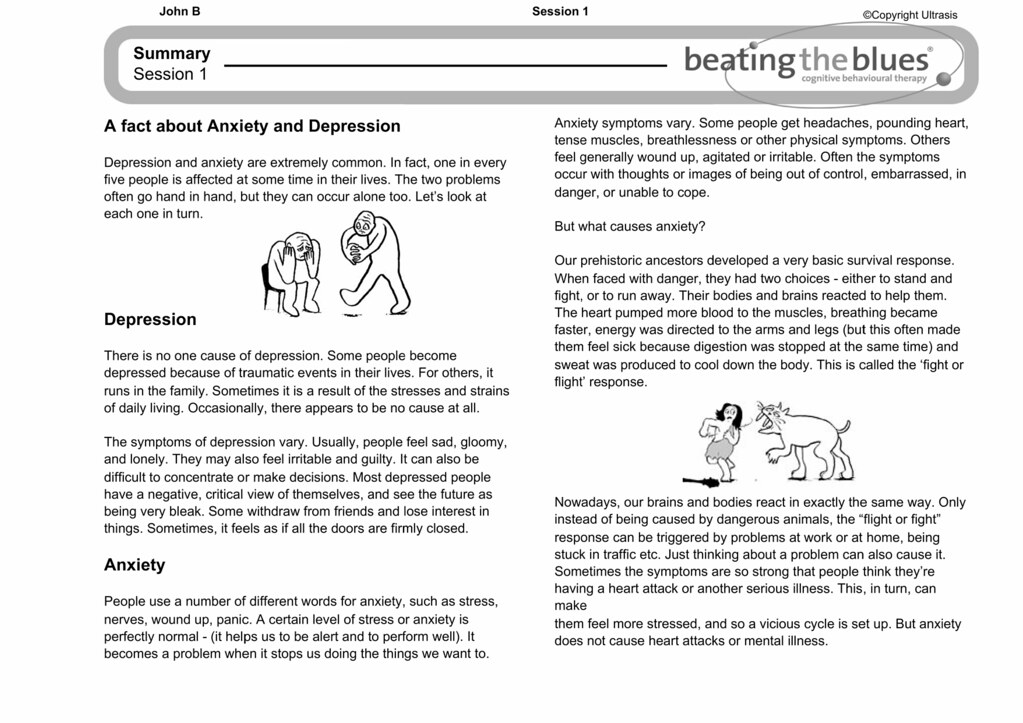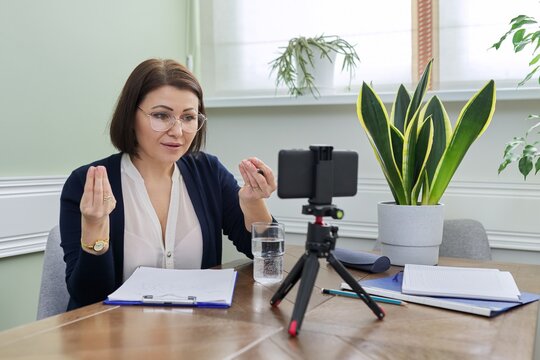Amid a rapidly evolving world, technology has brought about significant changes in almost every aspect of our lives. One area that has seen tremendous growth and innovation is therapy. With the rise of online counselling, accessing mental health care has never been easier.
Furthermore, video counselling is quickly becoming the preferred mode of treatment for individuals seeking therapy. We’ll explore the unstoppable future of video counselling in therapy and how it’s transforming how we approach mental health care.

What is Video Counselling, and How Does it Work in Therapy?
Video counselling is a form of therapy where sessions occur over video conferencing software, like Skype or Zoom. It allows therapists to connect with their clients from anywhere in the world, making it more convenient for patients with mobility issues or living far away from treatment centres.
During a video counselling session, both therapist and client can see each other via webcam and communicate through audio. The software usually also provides chat capabilities so they can text if required during the meeting.
The process works similarly to traditional in-person psychotherapy: clients discuss their problems while therapists provide feedback and support. Video counselling offers added benefits because it eliminates geographic barriers that can prevent some people from getting help. Additionally, remote therapy cuts down on travel time and costs as well as downtime due to disruptions such as inclement weather, transportation failures etc.
However, it’s important for potential patients to understand that video counselling may not be an appropriate option for everyone at every stage of treatment depending on specific circumstances like technical difficulties on either end or mental health conditions, including severe depression or anxiety disorders.

The Rise of Online Counselling: A Look Into the Future
Video counselling has become increasingly popular recently, and the COVID-19 pandemic has only accelerated its growth. With the rise of online counselling, therapists can now connect with clients worldwide, breaking down geographical barriers and making therapy more accessible than ever before. The future of video counselling looks bright, with more and more people turning to this form of therapy for its convenience and flexibility.
Teletherapy has also been shown to be just as effective as traditional in-person therapy, with some studies even suggesting that it may be more effective for certain types of mental health issues. As technology advances, we can expect to see even more innovative ways for therapists to connect with their clients virtually.
The possibilities are endless, from virtual reality therapy to chatbots that provide mental health support. The future of therapy is here, and it’s exciting to see how video counselling will continue to shape the mental health landscape in the years to come.

Benefits of Video Counselling Over Traditional In-Person Sessions
Video counselling has several advantages over traditional in-person therapy sessions. Firstly, it provides a convenience unmatched by any other form of therapy. Patients can attend sessions from the comfort of their homes without worrying about transportation or scheduling conflicts. Secondly, video counselling is more affordable than traditional therapy sessions.
Patients do not have to pay for transportation costs or the therapist’s office space, which can significantly reduce the overall cost of treatment. Additionally, video counselling allows patients to receive care from therapists who may not be available in their local area.
This is particularly beneficial for individuals living in rural or remote areas with limited mental health services. Finally, video counselling offers a level of flexibility that is not possible with traditional therapy sessions. Patients can schedule appointments at times that are convenient for them and choose to have shorter or longer sessions depending on their needs.

Accessibility in Therapy: Why Video Counselling is a Game-Changer
Breaking Down Barriers: How Video Counselling is Making Therapy More Accessible
Video counselling is revolutionizing the accessibility of therapy. Geographical barriers and mobility issues are no longer a hindrance to receiving mental health services. Patients can now access therapy from the comfort of their own homes, regardless of their location or physical abilities. This has been incredibly beneficial for those living in rural or remote areas, where mental health services may be limited or non-existent. Additionally, individuals with disabilities or chronic illnesses that make it challenging to travel can now receive the care they need through video counselling. With this technology, therapy is becoming more accessible and inclusive for all.
The Rise of Teletherapy: Why Video Counselling is Here to Stay
Teletherapy has revolutionized the mental health industry by making professional counselling available to anyone with an internet connection. The rise of video counselling has brought convenience and accessibility to those who otherwise might not have access to therapy due to geographical or financial limitations.
Furthermore, teletherapy is often more flexible when scheduling appointments, which is especially important for those with busy work schedules or mobility issues. With advancements in technology and a growing demand for online services during the pandemic, video counselling has proven to be here to stay as a reliable source of mental health care.
Overcoming Stigma: How Video Counselling is Changing the Perception of Therapy
Video counselling is breaking down barriers and making therapy more accessible. For many people, the stigma surrounding mental health can be a significant obstacle to seeking help. However, with the anonymity and convenience of video counselling, patients can receive treatment from the comfort of their homes without fear of judgment. This is especially important for those who live in rural or remote areas where access to mental health services may be limited.
Additionally, video counselling allows patients with physical disabilities or mobility issues to receive therapy without the added stress of travelling to an in-person session. Overall, video counselling is revolutionizing how we approach mental health care and making it more inclusive.
The Benefits of Video Counselling: Why More Therapists are Embracing Online Sessions
Video counselling offers numerous benefits, driving more therapists to embrace online sessions. Firstly, it provides convenience for patients with difficulty attending in-person sessions due to distance, mobility issues, or busy schedules.
Secondly, it allows flexibility in scheduling appointments, as patients can choose a time that works best for them without worrying about travel time. Additionally, video counselling eliminates the need for physical office space, reducing overhead costs for therapists and making therapy more affordable for patients. With these advantages, it’s no wonder why video counselling is becoming an increasingly popular option for accessible and effective therapy.

Tips for Preparing For Your First Session with a Video Counselor
Preparing For Your First Session with a Video Counselor
If you’re new to video counselling, feeling nervous before your first session is natural. However, there are some things you can do to prepare and make the experience as smooth as possible.
Firstly, ensure a stable internet connection and a quiet, private space without interruption. Test your video and audio settings beforehand to avoid technical difficulties during the session.
It’s also essential to find a therapist who is licensed and experienced in providing online counselling services. Look for reviews or recommendations from trusted sources.
During the session, try to treat it like an in-person appointment. Be honest and open with your therapist about your concerns and goals for therapy. Remember that confidentiality is still essential in video counselling, so ensure you are in a secure location where others cannot overhear the conversation.
Overall, video counselling can be a convenient and effective way to access mental health services. With some preparation and the right therapist, it can be just as beneficial as traditional in-person sessions.

Ensuring Privacy and Confidentiality in Online Counseling Sessions
Privacy and Confidentiality are crucial components of any therapy session, which is no different in video counselling. Therapists who offer online sessions must ensure that their client’s personal information is protected and that their video platform is secure.
Clients should also protect their privacy, such as using a private location for the session and ensuring that their internet connection is secure. Additionally, therapists must follow ethical guidelines and legal requirements for online therapy, such as obtaining informed consent from clients and adhering to state licensing laws.
Both therapists and clients need to be aware of these issues and take steps to ensure that online therapy sessions are conducted safely and confidentially.

Technology, Ethics and Legal Issues Surrounding Online Consultations
The Benefits and Drawbacks of Video Counselling in Therapy
One of the main benefits of video counselling is that it allows patients to receive therapy from the comfort of their homes, eliminating travel time and costs. It also offers individuals who may have mobility issues or live in remote areas access to mental health care.
However, there are potential drawbacks, such as technical glitches, privacy concerns and limitations with nonverbal communication. Despite these challenges, video counselling has proven to be an effective form of therapy for many people seeking help for a variety of mental health concerns such as depression and anxiety disorders.
Ensuring Ethical and Legal Compliance in Online Consultations
Ensuring ethical and legal compliance is crucial when providing video counselling services. Therapists must adhere to relevant federal, state or provincial regulations that govern teletherapy practice within their respective countries or regions.
Besides obtaining proper licensure and certification, therapists should ensure they use secure platforms for confidential communication with clients and obtain informed consent from participants before any sessions commence. Additionally, they must document treatment plans and progress notes by applicable industry standards. It’s advisable for therapists who offer online consultations to seek ongoing education on ethical considerations related to remote therapy services as technology continues to evolve rapidly in this field.
Overcoming Technological Challenges in Video Counselling
Overcoming technological challenges in video counselling is crucial to ensuring smooth and uninterrupted sessions. Therapists need a stable internet connection, high-quality video conferencing software, and suitable hardware such as a webcam and microphone. Patients also need access to reliable internet services and compatible devices. Therapists must educate patients on troubleshooting common technical issues during online consultations, like sound or connectivity problems. By providing clear instructions before the session starts, therapists can help alleviate any technology-related anxiety, paving the way for more effective virtual therapy experiences for their clients.
The Future of Therapy: How Video Counselling is Changing the Landscape
The future of therapy is rapidly changing with the advent of video counselling. While this technology offers many benefits, it raises important ethical and legal issues that must be addressed. For example, ensuring the privacy and confidentiality of patient information is crucial in online consultations. Additionally, therapists must adhere to professional standards and guidelines when providing virtual therapy services. As video counselling continues to grow, mental health professionals must stay up-to-date on these issues and ensure that they provide safe and effective care to their patients.
Empowering Patients Through Virtual Therapy: The Pros And Cons
Virtual therapy, including video counselling, has become increasingly popular. One of the main benefits of virtual therapy is that it empowers patients to take control of their mental health by providing them with more options for accessing care. Patients who live in remote areas or have mobility issues can now receive the same quality of care as those who live in urban areas.
Another advantage of virtual therapy is that it allows patients to receive care from the comfort of their own homes. This can be especially beneficial for individuals who suffer from anxiety or other conditions that make it difficult to leave the house.
However, there are also some potential drawbacks to virtual therapy. For example, patients may feel less connected to their therapist when communicating through a screen rather than in person. Additionally, technical difficulties or connectivity issues can disrupt sessions and cause frustration for the patient and the therapist.
Overall, virtual therapy has the potential to greatly benefit patients by providing them with more options for accessing care and empowering them to take control of their mental health. However, patients and therapists must be aware of the potential drawbacks and work together to ensure that sessions are as practical as possible.

Personalized Care at Your Fingertips: Redefining Mental Health Services with Teletherapy
Teletherapy is revolutionizing the way mental health services are delivered. With the rise of video counselling, patients can access personalized care from their homes. This means that people who may have previously been unable to attend in-person sessions due to distance, mobility issues, or other barriers can now receive the support they need.
Another advantage of teletherapy is that it allows more flexibility in scheduling appointments. Patients can often book sessions outside of traditional office hours, making fitting therapy into their busy lives easier. Additionally, teletherapy can be more affordable than in-person therapy, as the therapist has no transportation costs or overhead expenses.
However, there are also some potential drawbacks to consider. Some patients may feel uncomfortable with technology or prefer face-to-face interactions. Therapists need to be aware of these concerns and address them appropriately. Additionally, there may be limitations to what can be achieved through virtual therapy, particularly for those with more complex mental health needs.
Overall, teletherapy offers a promising future for mental health services. By providing greater accessibility and flexibility, it has the potential to improve outcomes and empower patients in their care.
Video counselling has revolutionized therapy by offering a convenient and accessible alternative to traditional in-person sessions. As technology advances and virtual communication becomes increasingly prevalent, online counselling is poised for even more significant growth in the future.
Patients can now receive personalized care from therapists regardless of location or physical barriers, improving mental health outcomes for many individuals. However, it’s essential for both patients and practitioners alike to consider privacy concerns and ethical and legal issues related to teletherapy.
Video counselling provides an innovative new avenue for people seeking support in their journey towards better mental health.
Frequently Asked Questions
Q. Who can benefit from video counselling?
A. Anyone who needs professional support remotely can benefit.
Q. What is video counselling?
A. Video counselling is a remote therapy session through video call.
Q. How does video counselling work?
A. Video counselling works through a secure online platform.
Q. Who will be my video counsellor?
A. A licensed and experienced therapist will be your video counsellor.
Q. What if I have technical difficulties during my session?
A. Technical support is available to assist you during your session.
Q. How effective is video counselling compared to in-person therapy?
A. Video counselling has been found to be just as effective as in-person therapy.
